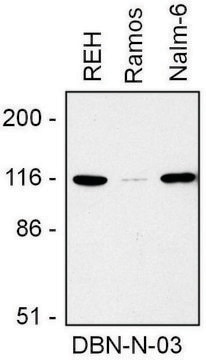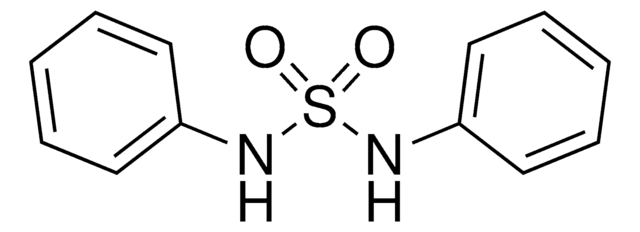P4543
Valproic acid sodium salt
98%
Synonym(s):
2-propylpentanoic acid sodium, Sodium 2-propylpentanoate, Sodium valproate
About This Item
Recommended Products
Assay
98%
form
powder
solubility
H2O: 50 mg/mL
originator
Abbott
SMILES string
[Na+].CCCC(CCC)C([O-])=O
InChI
1S/C8H16O2.Na/c1-3-5-7(6-4-2)8(9)10;/h7H,3-6H2,1-2H3,(H,9,10);/q;+1/p-1
InChI key
AEQFSUDEHCCHBT-UHFFFAOYSA-M
Gene Information
human ... ALDH5A1(7915)
Looking for similar products? Visit Product Comparison Guide
General description
Valproic acid is an anticonvulsant and mood-stabilizing drug. It is used to treat epilepsy and bipolar disorder. Valproic acid helps to repress the Warburg effect and the development of tumor in neuroblastoma.
Application
- in resazurin viability assay
- to systematically study its effects of clinical doses on brain volume and offspring behavior
- to study its effect on atherosclerotic lesion size
- in genetic expression studies in mice
Biochem/physiol Actions
Features and Benefits
related product
Signal Word
Warning
Hazard Statements
Precautionary Statements
Hazard Classifications
Acute Tox. 4 Oral - Repr. 2
Storage Class Code
11 - Combustible Solids
WGK
WGK 3
Flash Point(F)
Not applicable
Flash Point(C)
Not applicable
Personal Protective Equipment
Certificates of Analysis (COA)
Search for Certificates of Analysis (COA) by entering the products Lot/Batch Number. Lot and Batch Numbers can be found on a product’s label following the words ‘Lot’ or ‘Batch’.
Already Own This Product?
Find documentation for the products that you have recently purchased in the Document Library.
Customers Also Viewed
Articles
Cancer research has revealed that the classical model of carcinogenesis, a three step process consisting of initiation, promotion, and progression, is not complete.
DISCOVER Bioactive Small Molecules for Neuroscience
DISCOVER Bioactive Small Molecules for Neuroscience
DISCOVER Bioactive Small Molecules for Neuroscience
Our team of scientists has experience in all areas of research including Life Science, Material Science, Chemical Synthesis, Chromatography, Analytical and many others.
Contact Technical Service














